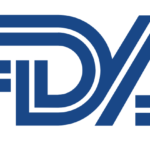
Today, the U.S. Food and Drug Administration (FDA) revoked the emergency use authorization (EUA) that allowed for chloroquine phosphate and hydroxychloroquine sulfate donated to the Strategic National Stockpile to be used to treat certain hospitalized patients with COVID-19 when a clinical trial was unavailable, or participation in a clinical trial was not feasible. The agency determined that the legal criteria for issuing an EUA are no longer met.
Hydroxychloroquine has been widely used as an anti-malarial drug for decades, and is also used by thousands of patients in the U.S. to treat lupus and rheumatoid arthritis.
The FDA, in its release, says recent studies show that hydroxychloroquine and chloroquine are unlikely to be effective in treating COVID-19. The FDA also mentioned studies have shown the drug can cause heart problems. In May, The Lancet published results of a study of 96,000 patients that showed they were more likely to develop an irregular heart rhythm. Because of that study, the World Health Organization halted trials using the drugs.
President Donald Trump has touted the benefits of hydroxychloroquine as a preventive or treatment for COVID-19, despite no medical evidence that it works, and he himself said he was taking the drug as a preventive. Some have thought that the President might have a financial stake in the drug. An article in the Washington Post debunked that idea, saying although Trump’s trusts do own stakes in the makers of hydroxychloroquine, the amount is negligible–for Trump personally, $1,500 or less in holdings.
The growth in demand for hydroxychloroquine has created shortages for patients who need it for treatment of diseases such as lupus and rheumatoid arthritis. One patient in Kailua-Kona reported that despite having ordered and received 90-day supplies delivered by mail for years, she has been advised by her health provider that she may only get 30-day supplies and it must be picked up at the pharmacy personally.